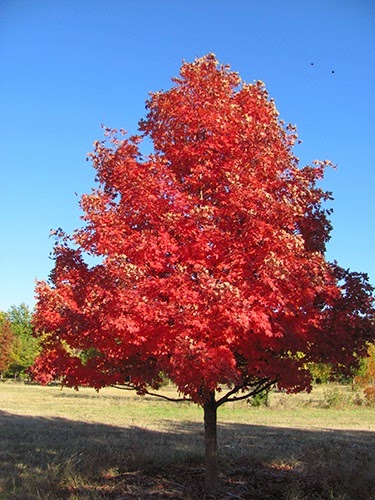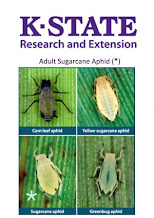Do you have questions about your livestock and other animals with the Covid-19 virus?
By: Sandra Wick, Crop Production Agent
In this time of uncertainty and worry, I just wanted to provide you with information about livestock and animals to have one less thing to worry about at this time. While coronavirus is a disease familiar to livestock producers, it is not the same strain of the Covid-19 virus that is affecting all of us.
The novel strain of coronavirus, COVID-19, is transmitted from human to human. There is no evidence that livestock can transmit the disease to humans, and the food products from livestock cannot carry COVID-19 to humans.
According to Dr. Gregg Hanzlicek, director of the production animal field investigations unit in K-State’s Veterinary Diagnostic Laboratory, “Producers are well aware that there is a (different strain of) coronavirus that is associated with neo-natal diarrhea, and there’s another one that we think is now associated with cattle respiratory disease.”
Hanzlicek further states that our cattle coronavirus has no relationship to the coronavirus that is currently circulating in humans. These coronaviruses are very species-specific. There is absolutely no indication that livestock can be carriers of COVID-19 and be a source of infection to humans, either through carrying it on their skin or their hair or anywhere else.
Proteins, such as milk, eggs, beef or pork, that are produced by livestock, are absolutely safe to eat. People do not have to worry about those products carrying COVID-19 to the population.
 Taking care of animals is a high priority, so producers are safe to go about their routine chores. The key is to minimize the amount of exposure we have to humans. At this point, producers should keep on doing what you do every day with your livestock.
Taking care of animals is a high priority, so producers are safe to go about their routine chores. The key is to minimize the amount of exposure we have to humans. At this point, producers should keep on doing what you do every day with your livestock.
Livestock producers who think they may have been exposed to COVID-19 should see their medical professional. If their livestock begin showing signs of illness, producers should contact their local veterinarian.
Your local vet would have the option to call the state or federal veterinarian and would make a decision whether to test those animals for COVID-19. A sampling of all animals is not encouraged as we do not think livestock are associated with this virus or with spreading the disease.
The U.S. Food and Drug Administration has relaxed its rules just a bit to allow producers to consult with a veterinarian through “tele-medicine” which is communicating sickness to a veterinarian by phone or online technology.
With the Covid-19 contact guidelines, the veterinarian doesn’t necessarily need to make a trip to actually look at the animals. So with the “tele-medicine” option, a trip to the farm could be avoided.
The K-State Veterinary Diagnostic Laboratory, which tests samples for suspected livestock disease, remains open during the university’s limited operations status. The lab is open 8 a.m. to 5 p.m. Monday through Friday, and 8 a.m. to noon on Saturday. Local veterinarians can contact the KSU Veterinary Diagnostic Laboratory at 785-532-5650 or at the website at www.ksvdl.org.
The U. S. Food and Drug Administration has a website with information for livestock owners regarding COVID-19 at, https://www.fda.gov/emergency-preparedness-and-response/counterterrorism-and-emerging-threats/coronavirus-disease-2019-covid-19.
If you have more questions, give us a call at any of our Post Rock Extension District Offices in Beloit, Lincoln, Mankato, Osborne or Smith Center if you have additional questions.
Post Rock Extension District of K-State Research and Extension serves Jewell, Lincoln, Mitchell, Osborne, and Smith counties. Sandra may be contacted at swick@ksu.edu or by calling Smith Center, 282-6823, Beloit 738-3597, Lincoln 524-4432, Mankato 378-3174, or Osborne 346-2521. Join us on Facebook at “Post Rock Extension” along with our blog site at postrockextension.blogspot.com. Also remember our website is www.postrock.ksu.edu and my twitter account is @PRDcrops.
In this time of uncertainty and worry, I just wanted to provide you with information about livestock and animals to have one less thing to worry about at this time. While coronavirus is a disease familiar to livestock producers, it is not the same strain of the Covid-19 virus that is affecting all of us.
The novel strain of coronavirus, COVID-19, is transmitted from human to human. There is no evidence that livestock can transmit the disease to humans, and the food products from livestock cannot carry COVID-19 to humans.
According to Dr. Gregg Hanzlicek, director of the production animal field investigations unit in K-State’s Veterinary Diagnostic Laboratory, “Producers are well aware that there is a (different strain of) coronavirus that is associated with neo-natal diarrhea, and there’s another one that we think is now associated with cattle respiratory disease.”
Hanzlicek further states that our cattle coronavirus has no relationship to the coronavirus that is currently circulating in humans. These coronaviruses are very species-specific. There is absolutely no indication that livestock can be carriers of COVID-19 and be a source of infection to humans, either through carrying it on their skin or their hair or anywhere else.
Proteins, such as milk, eggs, beef or pork, that are produced by livestock, are absolutely safe to eat. People do not have to worry about those products carrying COVID-19 to the population.
 Taking care of animals is a high priority, so producers are safe to go about their routine chores. The key is to minimize the amount of exposure we have to humans. At this point, producers should keep on doing what you do every day with your livestock.
Taking care of animals is a high priority, so producers are safe to go about their routine chores. The key is to minimize the amount of exposure we have to humans. At this point, producers should keep on doing what you do every day with your livestock.Livestock producers who think they may have been exposed to COVID-19 should see their medical professional. If their livestock begin showing signs of illness, producers should contact their local veterinarian.
Your local vet would have the option to call the state or federal veterinarian and would make a decision whether to test those animals for COVID-19. A sampling of all animals is not encouraged as we do not think livestock are associated with this virus or with spreading the disease.
The U.S. Food and Drug Administration has relaxed its rules just a bit to allow producers to consult with a veterinarian through “tele-medicine” which is communicating sickness to a veterinarian by phone or online technology.
With the Covid-19 contact guidelines, the veterinarian doesn’t necessarily need to make a trip to actually look at the animals. So with the “tele-medicine” option, a trip to the farm could be avoided.
The K-State Veterinary Diagnostic Laboratory, which tests samples for suspected livestock disease, remains open during the university’s limited operations status. The lab is open 8 a.m. to 5 p.m. Monday through Friday, and 8 a.m. to noon on Saturday. Local veterinarians can contact the KSU Veterinary Diagnostic Laboratory at 785-532-5650 or at the website at www.ksvdl.org.
The U. S. Food and Drug Administration has a website with information for livestock owners regarding COVID-19 at, https://www.fda.gov/emergency-preparedness-and-response/counterterrorism-and-emerging-threats/coronavirus-disease-2019-covid-19.
If you have more questions, give us a call at any of our Post Rock Extension District Offices in Beloit, Lincoln, Mankato, Osborne or Smith Center if you have additional questions.
Post Rock Extension District of K-State Research and Extension serves Jewell, Lincoln, Mitchell, Osborne, and Smith counties. Sandra may be contacted at swick@ksu.edu or by calling Smith Center, 282-6823, Beloit 738-3597, Lincoln 524-4432, Mankato 378-3174, or Osborne 346-2521. Join us on Facebook at “Post Rock Extension” along with our blog site at postrockextension.blogspot.com. Also remember our website is www.postrock.ksu.edu and my twitter account is @PRDcrops.









